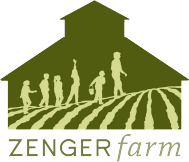Our Sliding Scale Philosophy
Many of our events and programs are made possible through our sliding scale or “pay as you can” model. This means that those who can pay more, allowing those who need to to pay less. Our sliding scale requires your active participation. Building economic justice in our food system takes some time and effort. By using a sliding scale, we are practicing economic solidarity: we are cooperating together to provide mutual support around the cost of our programs, and by doing so, we hope to create a more equitable, inclusive and just community. We hope that our very broad sliding scales allow more people to participate, while modeling fair compensation.
Other factors besides income affect your financial status. Some groups of privileged people go through life with a tailwind at their back, others with less privilege face a headwind. For most people, there is a mix of tailwinds and headwinds. Please consider other factors when choosing the amount you pay.
Consider contributing MORE when you…
- own your home;
- have retirement accounts, investments, or inherited money;
- have access to family money and resources in times of need;
- have significant discretionary expenses like travel, dining out, entertainment, etc.;
- have a relatively high degree of earning power* due to your education level (or other privileges you may have associated with race, gender, citizenship status, class background, sexual orientation, gender identity, physical ability, etc.).
*Even if you are not currently exercising your earning power, we ask you to recognize when this is a choice and consider contributing more.
For businesses and organizations when you…
-
-
-
- are a large business
- own or are owned by other companies
- are dominant in your field
- have a CEO who is paid over three times more than the lowest paid employee
-
-
Consider paying LESS when you…
- are supporting more children, other dependents, or sending remittances;
- have significant non-mortgage debt, particularly cash advance or payday loans;
- have medical expenses not covered by insurance;
- are impacted by state violence (e.g. refugees, asylees and injustice in our criminal system).
For businesses and organizations when you…
-
-
-
- are a local small business
- are independently owned and operated
- are not dominant in your field
- have a CEO who is paid no more than three times that of the lowest paid employee
-
-
Using the Sliding Scale for Our CSA
Our CSA sliding scale is based on whether your family’s income is enough to meet an extensive budget of expenses (source). For example, families who have income that is exactly equal to this budget are encouraged to pay the midpoint in our sliding scale (which would be 0%). Another example, a family with an income 10% above this budget is encouraged to contribute 10% more. Finally, a family with an income 20% less than this budget is encouraged to request a 20% discount. A sliding scale based on income means that everyone is spending a similar percentage of their income on food.

